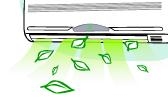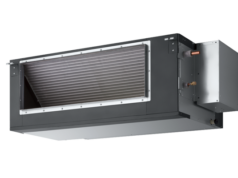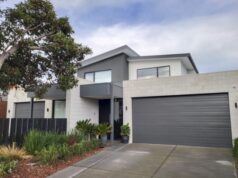
If you need to artificially cool your home, it’s well worth considering how much that’ll cost, and what kinds of options you have. Air conditioners are effective, but they’re also very energy hungry…
Any discussion on the overall ‘efficiency’ of air conditioners and how different types compare is a bit difficult – mostly because different types of cooling technologies offer very different types of ‘cool’, but also because the efficiency levels – particularly of refrigerative air conditioners – is often very different even between different brands and models. Likewise, where they’re installed and how they’re used can make a huge difference as well.

Natural fuel sources
The question of which system is most efficient is easily answered though: it’s the one that draws its power from the most efficient source. The most energy-efficient cooling solution you can install is one that’s powered by a roof-mounted solar electric system. Mounting photovoltaic cells on your roof means that you can effectively power your air conditioner for free.
Refrigerative air conditioners are notoriously energy hungry, but even if you’re using more power than your solar panels can produce while you’ve got the airconditioner on (and you will unless you’ve got a lot of panels), it’s most likely that on the whole you’ll be feeding more energy back into the grid than you’re using anyway.
Evaporative cooling systems can be run on solar power too, but they consume water. In technical terms that might make them a slightly less efficient (and certainly less effective) option on an ongoing basis than refrigerative air conditioners in this type of setup – although they normally use a lot less electricity than refrigerative air conditioners.
Geothermal heat pump air conditioners are also an excellent choice. Because of the consistent temperature of the ground, they have a constant, ready supply of energy to draw on, making them extremely efficient and very capable of providing refrigerative cooling and heating to your home. The only energy these systems use is the energy required to drive the pump. Likewise with solar cooling solutions, which work on similar principles (althought they’re not really a viable option for most people).
Fuel not required
The other ‘perfect’ way to heat and cool your home is to do it passively. Passive house design is a way to design your home so that you can naturally keep it cool or warm as needed, using heat absorbed from the sun, careful use of shade, the right window treatments, insulation and ventilation principles. In an ideal passively cooled home, ‘active’ cooling systems like fans and air conditioners are barely be needed at all.
It’s not uncommon in well designed houses to be able to maintain a comfortable temperature in the mid or low 20’s – without runnning the aircon – when it’s over 40 degrees outside.
Heating and cooling often account for the bulk of the energy used in your home – if you’re building a house from scratch, aiming to reduce heating and cooling loads as much as possible is a very smart choice.
Cooling on mains electricity
Choosing between refrigerative and evaporative air conditioning is a bit like having to choose whether you’d like effective or cost-effective cooling. Refrigerative cooling is widely regarded as being a lot better at cooling than evaporative systems, particularly in areas of high temperatures and high humidity – but it uses a lot of electricity.
Evaporative cooling uses a lot less electricity, but it’s much less effective in high humidity areas, and if you’re thinking about efficiency, it’s important to remember that part of what you need to consider is the comfort it provides for the amount of energy used.
Fans provide yet another way of cooling, and are more cost-effective again over evaporative coolers. If you live in a humid climate, fans are the more efficient option between the two. Refrigerative air conditioners provide much better cooling than fans, but can cost 30 or 40 times as much to run.
Inverter systems
If you would prefer a refrigerative system, the most efficient option is probably an inverter system. These systems operate using a variable motor to control the compressor, allowing for much lower power consumption. When they’re not running at full capacity, inverter systems can use up to 50% less electricity than equivalent fixed speed systems. While generally more efficient, they do often cost more to buy. Consider how much the system will cost to run, and how often you’ll use it.
- Because of the way the energy efficiency label system works, inverters don’t necessarily have the best energy efficiency star ratings. When they’re used at lower speeds though, they are normally more efficient than fixed-speed systems.
Enhancements for better efficiency
The simplest way to improve the efficiency of your air conditioning system is to ensure that your house is set up to make the most of it. If you have an evaporative cooler or you are using fans, this means ensuring that you have good ventilation.
If you have a refrigerative air conditioner, you can improve efficiency by reducing the amount of heat entering the room you’re cooling. The best way to do this is to install double glazing, ideally using low-e glass. Another option is to fit a special window film. Curtains with a thermal backing will also help, as will ensuring that your home is properly insulated.





